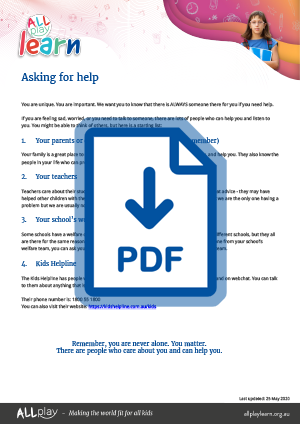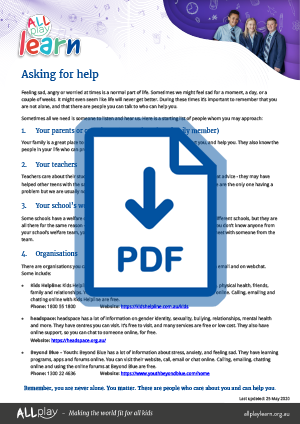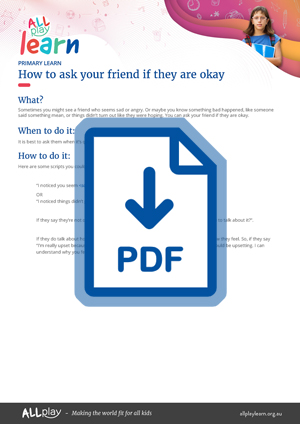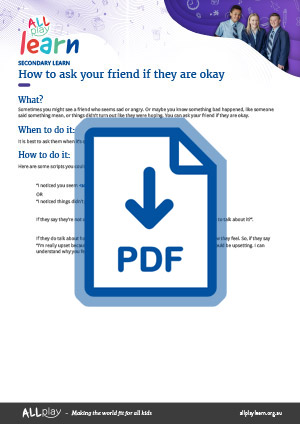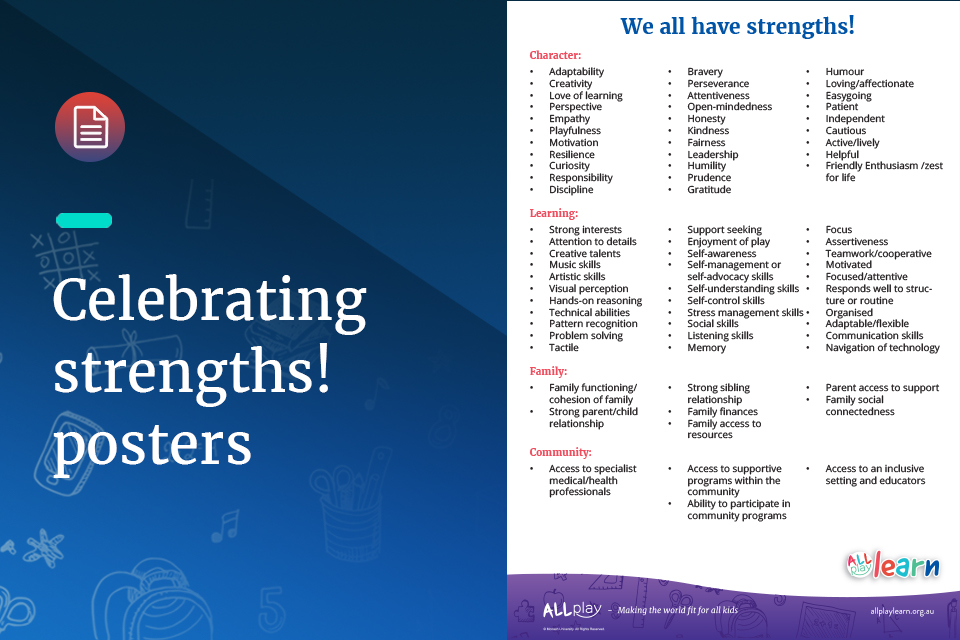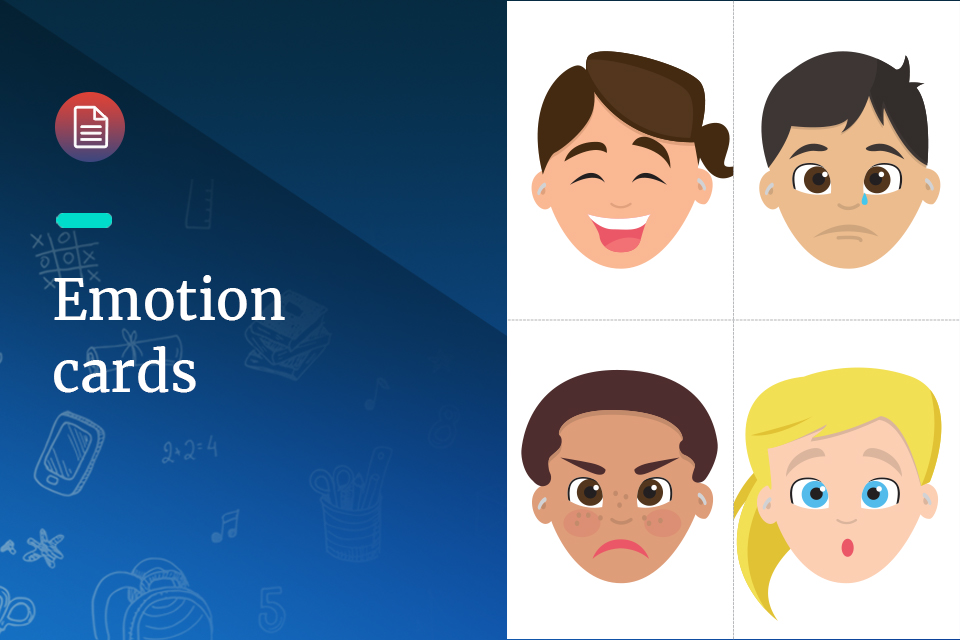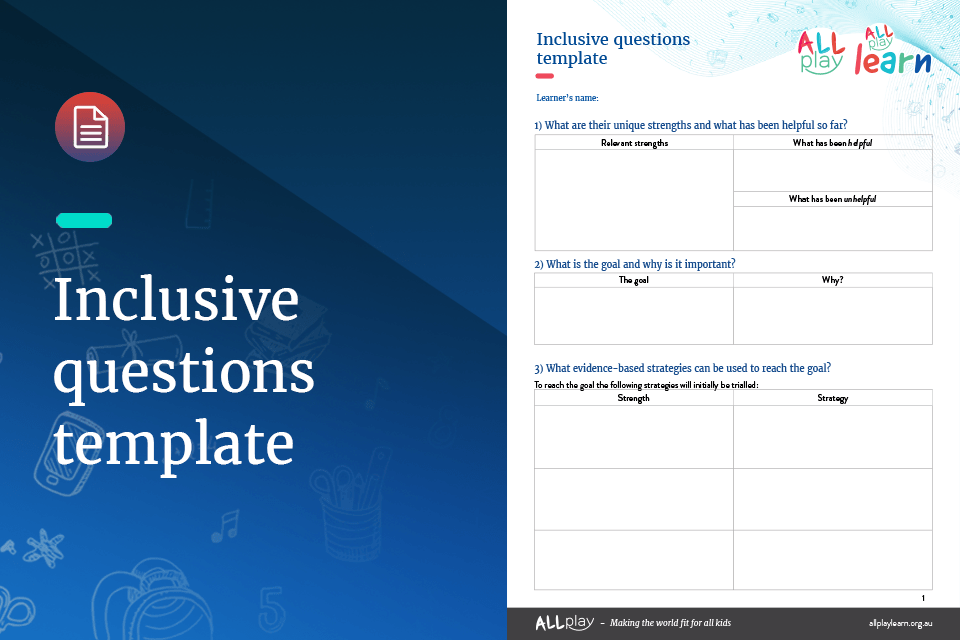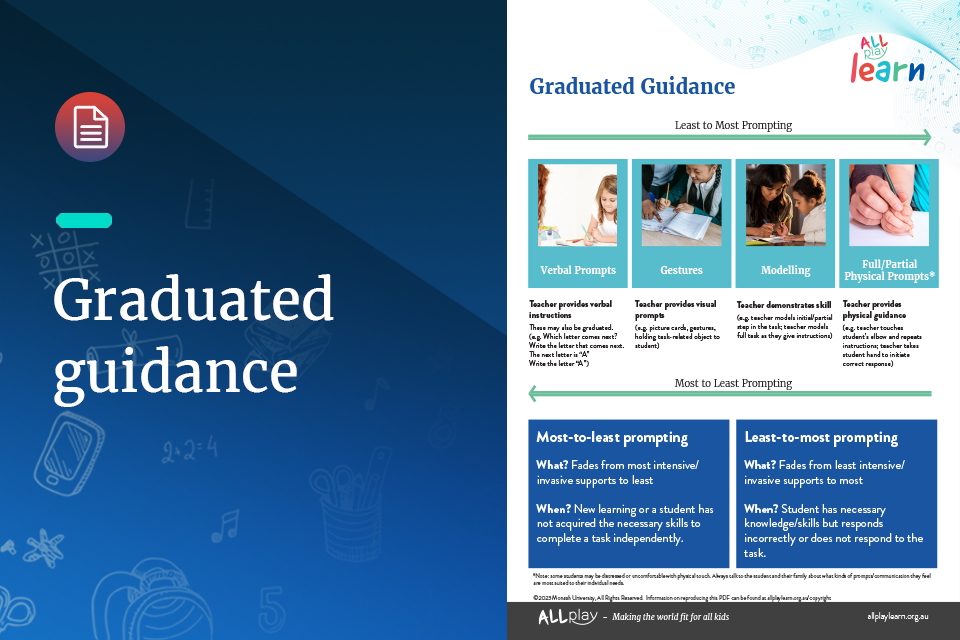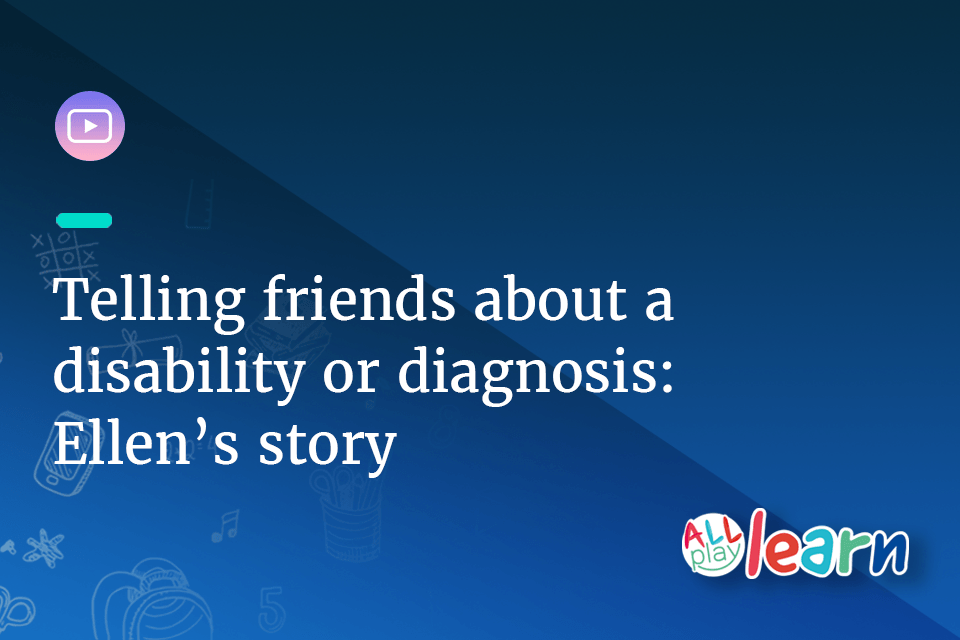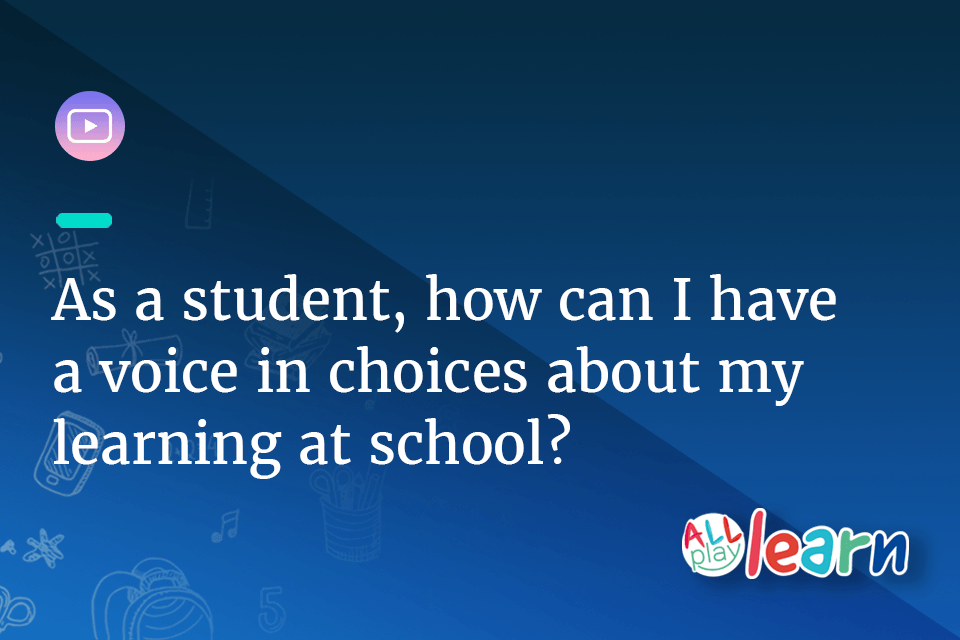Asking for help
Resource toolkit

About the resource

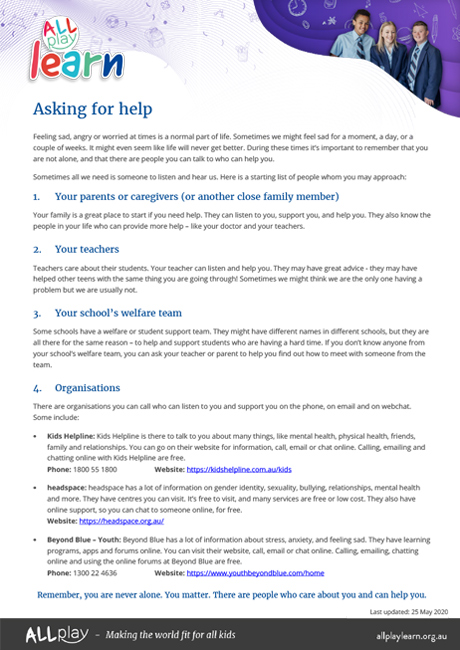
Some students may not know how or where to seek help. These "asking for help" resources provide students with safe adults and organisations they can seek help from when feeling distressed. Consider providing these resources to all students, and talking with students about what wording they could use when seeking wellbeing or mental health support.

How to ask your friend if they are okay
Students can express their concerns for peers who may seem sad or angry, or if they are aware that something bad has happened, like someone said something mean, or things didn’t turn out like they were hoping. These suggested conversational starters can be shared with students to support asking their friend if they are okay.



